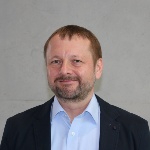Training concept and goals
EpiSignal will establish an interdisciplinary training program, which offers timely and innovative training in all relevant disciplines (cell biology, biochemistry, molecular (epi)genetics and systems biology) and prepares doctoral researchers ideally for cutting-edge research and future career paths in academia or industry. To ensure interdisciplinary training, each doctoral researcher is co-supervised by two PIs from different research fields.
EpiSignal will set up an individual, well-balanced training program in scientific and transferable skills for each doctoral researcher. The EpiSignal qualification program includes tailored interdisciplinary lecture series and workshops, regular scientific seminars with progress and paper presentations, yearly retreats with international guest scientists, Tech schools with peer-to-peer training in advanced methods, training in transferable skills, plus lab stays abroad, industrial placements and conference participation. Based on this, EpiSignal will offer:
- A timely and innovative research program providing excellent topics for doctoral studies and excellent experimental and theoretical training in the disciplines involved in the studies of each doctoral researcher
- Acquisition of interdisciplinary skills through the tailored qualification program and early inclusion of doctoral researchers into independent research
- Excellent and individualized supervision with the aim to train each of the doctoral researchers individually to the best of their potential
- Development of the skills of the doctoral researchers as task-oriented scientists to develop them into responsible researcher
By this, EpiSignal doctoral researchers will receive a unique, interdisciplinary education in an emerging field of biomedical research endowing them with all necessary skills to pursue successful careers either in academia or in industry.
Detailed description of the EpiSignal qualification program
One day symposium within the first weeks after arrival of the doctoral researchers of each cohort comprising welcome notes, a presentation of the structure, concept and philosophy of the program, introduction of the principal investigators (PIs) and their projects and general information about the environment at the University of Stuttgart, followed by a get-together party.
Each incoming doctoral researcher participates in one or two M.Sc. course(s) (in total 6 CP) selected to fill potential knowledge gaps in one field of the interdisciplinary project. These courses are identified by the doctoral researcher together with the supervisor, depending on the topic of the doctoral project and previous education of the doctoral researcher.
In this weekly lecture series running over the first year of the qualification program, EpiSignal PIs introduce their research and the scientific concepts related to the different fields of EpiSignal. The lectures will also cover subject oriented introductions and will give insights into the both basic and more advanced experimental and conceptual approaches in the different fields of EpiSignal.
The EpiSignal Seminar is held every second week as a central exchange and group-building measure. Seminars typically comprise one progress report by a doctoral researcher followed by an in-depth scientific discussion with the doctoral researchers and all PIs. In addition, there is a presentation of a research paper by a doctoral researcher with two other doctoral researchers assigned as formal “opponents” to foster critical scientific discussion. Once in year 3, the EpiSignal Seminar will organize a Career day and invite previous coworkers of the PIs, who are now employed in leading academic or industrial positions in the biomedical field. These alumnae will briefly introduce their career path and explain their current working environment, expectations of the employer, required skills, and perspectives of their occupation.
A yearly annual retreat occurs at an external place over three days with participation of doctoral researchers, PIs, External Advisory Board members, and international guests. It includes oral presentations by selected doctoral researchers, selected PIs and External Advisory Board members, in addition to posters presented by all doctoral researchers. The annual retreat also includes group-building and social activities. During the fourth year of the funding period, the EpiSignal annual retreat will be organized as an international symposium presenting the consortium's scientific accomplishments to the broader scientific community.
EpiSignal organizes a yearly Tech school running over 3 days. At this event, the EpiSignal doctoral researchers learn new techniques, or gain more expertise in already used techniques in hands-on training courses that are supervised by other doctoral researchers (peer-to-peer training). This broadens the technical skills of the doctoral researchers and provides experiences as instructors.
The following topics are covered by the Tech school: advanced image analysis (segmentation, cell tracking, quantification), advanced microscopy (time-lapse imaging, high/super-resolution imaging), flow cytometry (multiparametric cell sorting and dispensing), 3D cell culture systems (organoids), mass spectrometry (proteomics, PTMs, protein-protein interactions), epigenome analysis (Bisulfite- and ChIP-seq), CRISPR/(d)Cas9 genome and epigenome editing, genome/transcriptome data analysis, peptide array synthesis and applications, methyltransferase and kinase assays, semisynthetic protein synthesis methods, data-integrated simulation and modeling.
The research education and presentation skills of the doctoral researchers are further developed by participation at international conferences and potential short-term visits at external labs. Each doctoral researcher should attend at least two national/international conferences scheduled in the second half of their doctoral studies. This will include mandatory oral or poster presentations of their work. EpiSignal also supports scientific visits of doctoral researchers at external research groups in academia or industry.
EpiSignal doctoral researchers attend seminars presented by external and international speakers initially invited by the EpiSignal PIs and EpiSignal doctoral researchers.
The EpiSignal RTG will provide dedicated training in transferable skills through EpiSignal Workshops each semester covering conflict resolution, gender and diversity awareness, anti-bias, good research practice, and aspects of scientific communication. This will be complemented by courses selected from the offers of the Graduate Academy of the University of Stuttgart (GRADUS).
Further information
Contact Us

General contact email
episignal@ibc.uni-stuttgart.de

Albert Jeltsch
Prof. Dr.Acting Director Institute of Biochemistry, Speaker EpiSignal RTG

Sara Weirich
Dr.Group leader Institute of Biochemistry, Program manager EpiSignal RTG



